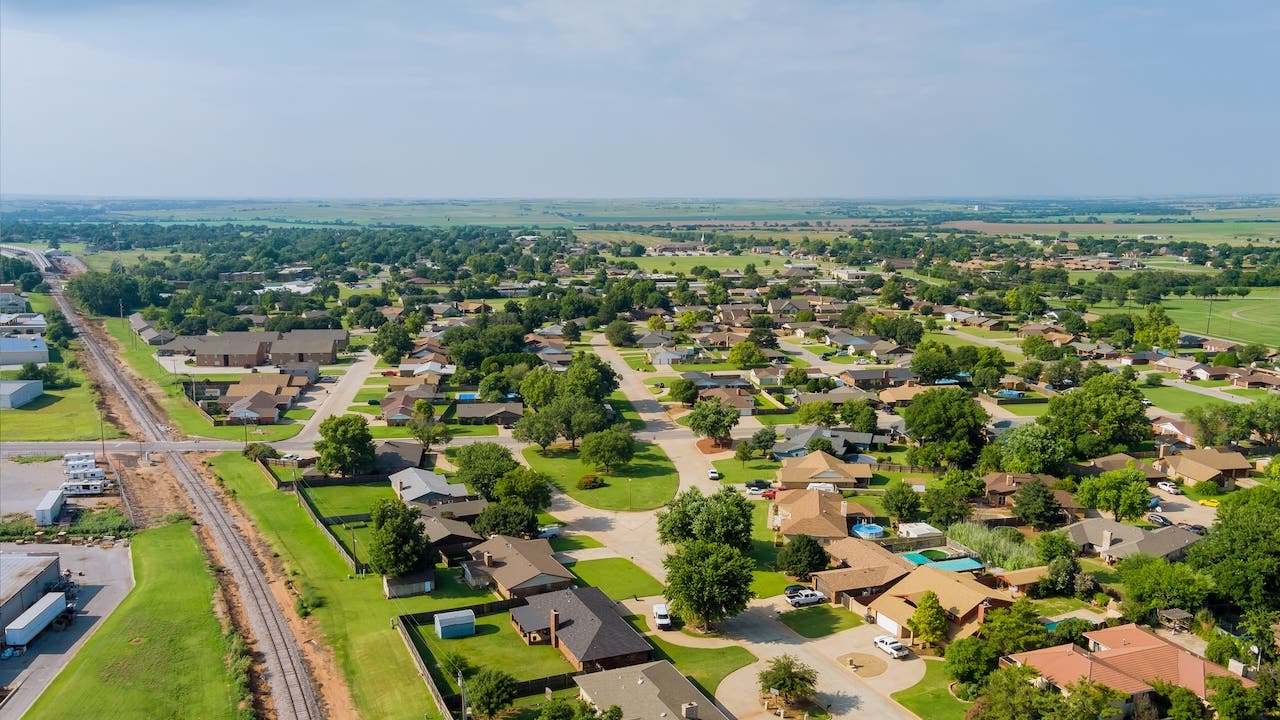Closing costs in Oklahoma: Who pays for what

Whether you’re buying a home or selling one, the closing is where the deal gets finalized. It’s also where you’ll pay all the assorted expenses and fees that come with a real estate transaction — these are called closing costs, and they vary widely depending on many factors, including location.
According to the most recent data from CoreLogic, average closing costs in Oklahoma amount to about 1.5 percent of the home’s purchase price, not including Realtor fees. Both buyers and sellers are responsible for a portion of these costs: Here’s a breakdown of who pays closing costs in Oklahoma, and how much.
How much are closing costs in Oklahoma?
The average rate for closing costs varies by state. Oklahoma’s rate of 1.5 percent of the sale price is the same as neighboring states Texas and Arkansas, but to the north in Kansas, the rate is only 1 percent.
However, the dollar amount will depend largely on how much the house costs. The median home sale price across the state is $251,800, according to August Redfin data. On a median-priced home, then, closing costs would come to $3,777. But in Oklahoma City, where the median is slightly higher at $274,450, that amount would be slightly higher — and in Tulsa, where the median is a bit lower at $240,000, the amount would be lower.
Who pays closing costs in Oklahoma, buyers or sellers?
Both the buyer and the seller pay closing costs of some kind in every state, including Oklahoma. However, the specific costs will be different for each. Buyers can expect to cover a number of costs mostly related to taking out a mortgage, while home sellers will usually cover transfer taxes and other fees, for example. And while Oklahoma does not require either party to hire a real estate lawyer, doing so anyway can be smart to protect your interests. If you do, the legal fees will be due at closing.
Closing costs for buyers
Buying a house requires more upfront money than just a down payment. Consider closing costs when you think about how much house you can afford. Here are some common costs for buyers:
- Lender fees: If you are financing your home purchase with a mortgage, you will likely need to pay a number of fees associated with this process. Lenders often charge fees for processing your application, running a credit check, originating the loan and more.
- Appraisal cost: Your lender will also require a professional home appraisal, to confirm that the home is worth at least the amount they’re lending you. This will be performed by an independent third party and the cost, likely a few hundred dollars, will fall to you.
- Home inspection cost: A home inspection, on the other hand, is not mandatory — but it’s usually a good idea to get one, so that you know what you’re getting into in terms of potential (or existing) problems. This will likely run another few hundred dollars.
- Title-related fees: Title fees may include the cost of a title search and a insurance policy, which protects against ownership issues. These fees are often split between the buyer and the seller.
- Escrow fees: You may need to deposit funds in an escrow account during the closing process; if so, there may be a fee to manage the account.
- Pre-paids: You may be required pre-pay a certain portion of your homeowner’s insurance premiums and property taxes. These funds are typically disbursed as needed by your mortgage servicer.
Closing costs for sellers
Here are some common closing costs for sellers in Oklahoma:
- Realtor commissions: Traditionally, commission fees for both real estate agents in a transaction have been paid by the seller. While buyers might now pay their own agents directly, depending on the details of your deal, sellers should still be prepared to pay their own agent a commission of somewhere between 2.5 and 3 percent of the home’s sale price. On a $400,000 home, for example, 2.5 percent comes to $10,000. If you’re paying your buyer’s agent as well, that figure will double.
- Documentary stamp tax: Often called a real estate transfer tax, this fee covers the cost of legally transferring property ownership and is most often paid by the seller. In Oklahoma, the tax rate is 75 cents for every $500 in home value — on a $400,000 house, that would come to $600.
- Title-related fees: These fees are often split between the buyer and the seller.
- Property taxes and HOA fees: Homeowners are responsible for any amount of property taxes owed up until closing day. If the property is part of a homeowners association, the same goes for HOA fees.
- Seller concessions: Many home sellers offer to pay a portion of the buyer’s closing costs, or to cover the cost of a needed repair, to sweeten the deal. If that’s the case, the amount will be part of your closing costs.
Lowering your closing costs in Oklahoma
Some fees, such as taxes, are not up for debate. However, you may be able to negotiate some closing costs.
Sellers can save money by negotiating a lower commission rate with their agent — or by negotiating the terms of the contract so that they don’t have to pay the buyer’s agent out of their proceeds.
Buyers, meanwhile, should shop around for lenders and homeowners insurance plans that can offer the best rates. It’s also smart to look for assistance programs that offer financial help with the down payment and closing costs — your agent can help you evaluate whether you’re eligible for any federal, state or local programs.
Find a local real estate agent
It’s helpful for both buyers and sellers to have an experienced local real estate agent in their corner. Agents are licensed pros who know their local markets well and can offer insight and guidance throughout the real estate process, regardless of which side of the transaction you’re on.
FAQs
Why we ask for feedback Your feedback helps us improve our content and services. It takes less than a minute to complete.
Your responses are anonymous and will only be used for improving our website.
You may also like

5 ways to pay for graduate school


Should I pay off my student loans early?

FR-44 insurance: What it is and when you need it


